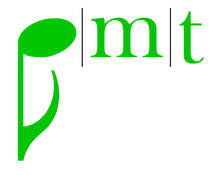Author: Perrin ThompsonI was most interested in this topic after recently working with a lot of kiddos with IEPs and attending the workshop presented by the Council for Children's Rights in Charlotte. While writing this post I was drinking a mocha! As service providers to children with disabilities, it’s likely that many music therapists will come into contact with an Individualized Education Plan (IEP) during their career. This can be a daunting task if one is called to participate in an IEP meeting and doesn’t have experience in this area! This post will give an overview of the IEP and help music therapists be better prepared for interpreting, participating in, and guiding clients and parents during the IEP process. Let’s start with the basics. An Individualized Education Plan (IEP) is a written plan provided by a public school system for children who show demonstrated need for specialized instruction in the school setting. The IEP team creates the IEP and must consist of:
Ideally, the IEP team will also include related service providers who work or will work with the student, which may include: physical therapists, occupational therapists, music therapists, speech and language pathologists, counselors, social workers, transportation aids, and health service providers. The IEP is a legal document and must include:
Whether a student has previously received an IEP or not, parents can request an IEP meeting at any time, so long as the request is made in writing (email or letter). Once the school receives a request for an initial IEP meeting, each state has a specific window of time in which the decision whether to evaluate the student, evaluation, and, if determined appropriate, IEP must be created. If a child already has an IEP, parents can request an IEP meeting at any time for any reason they may have. Reasons may include but are not limited to:
As related service providers who may participate as members of the IEP team, music therapists can monitor progress a student is making in his/her goals listed on the IEP. If progress is not being made satisfactorily, the MT may want to talk to parents about requesting an IEP revision because the child may be falling behind on goals in areas that MT is not helping to accomplish as well. Related service providers are advocates for the clients; having a good understanding of the IEP process and student/parent rights can be extremely beneficial in guiding parents through what can be a tricky process.  In preparing for the meeting, review the student’s paperwork and documentation. If participating in an annual review or revision meeting, review progress made on goals and brainstorm suggestions for what can be accomplished through new goals for the student and interventions that may be helpful. Keep in mind that school districts cannot deny a student services just because they do not currently provide them, so ask for whatever the student needs. Come prepared with a list of questions for other members of the team. If needed, assist parents in preparing their “parent vision” portion of the annual review and always make sure they’re comfortable with the process before the meeting! Realize that meetings can be quite long and may last longer than two hours. During the meeting, participate, ask questions, get clarification, offer parental/student support, and present concerns in a constructive manner. It’s important to be respectful of other IEP team members in the meeting and work to foster relationships; the other members of the team can be immensely helpful in collaborating within a multidisciplinary approach in assisting the student. More specifically for music therapists, this may be the only interaction the team members get with a music therapist – it’s important to represent the profession well by being professional, organized, helpful, and prepared for IEP meetings. After the meeting, offer support for parents and students. It’s a good idea to check in with them and make sure they don’t have any unanswered questions and to offer a listening ear, if need be. Request a copy of the new (or revised) IEP to keep with client documentation and assist in goal setting for the client. If possible, MT can contact other IEP team members/related service providers to check how student is doing in other areas throughout the year. Additionally, document communication with the student’s school and make sure that the student is receiving the services and accommodations that are guaranteed under his/her IEP. It can be difficult and time consuming, but follow up with administrators if you feel that student’s or service providers’ rights are not being respected. The IEP is a legal document and failure by the school to provide everything listed in a student’s IEP is a legal concern – stay vigilant and on top of things so that you can advocate for the student if need be.
Special thanks to the Council for Children's Rights in Charlotte
for increasing education and awareness about an IEP. Learn more about upcoming training seminars: 704-372-7961 or email [email protected].
0 Comments
Your comment will be posted after it is approved.
Leave a Reply. |
PMTProviding music therapy services for early childhood to older adults, music instruction and enrichment plus continuing music therapy education in Greater Charlotte Area of the Carolinas. Archives
May 2024
Categories
All
|
Piedmont Music Therapy is a 501(c)(3) status organization.
Piedmont Music Therapy accepts donations via venmo @piedmontmusictherapy or any amount through QuickBooks. Contact us to arrange an electronic pledge!
Main Location |
|


 RSS Feed
RSS Feed
